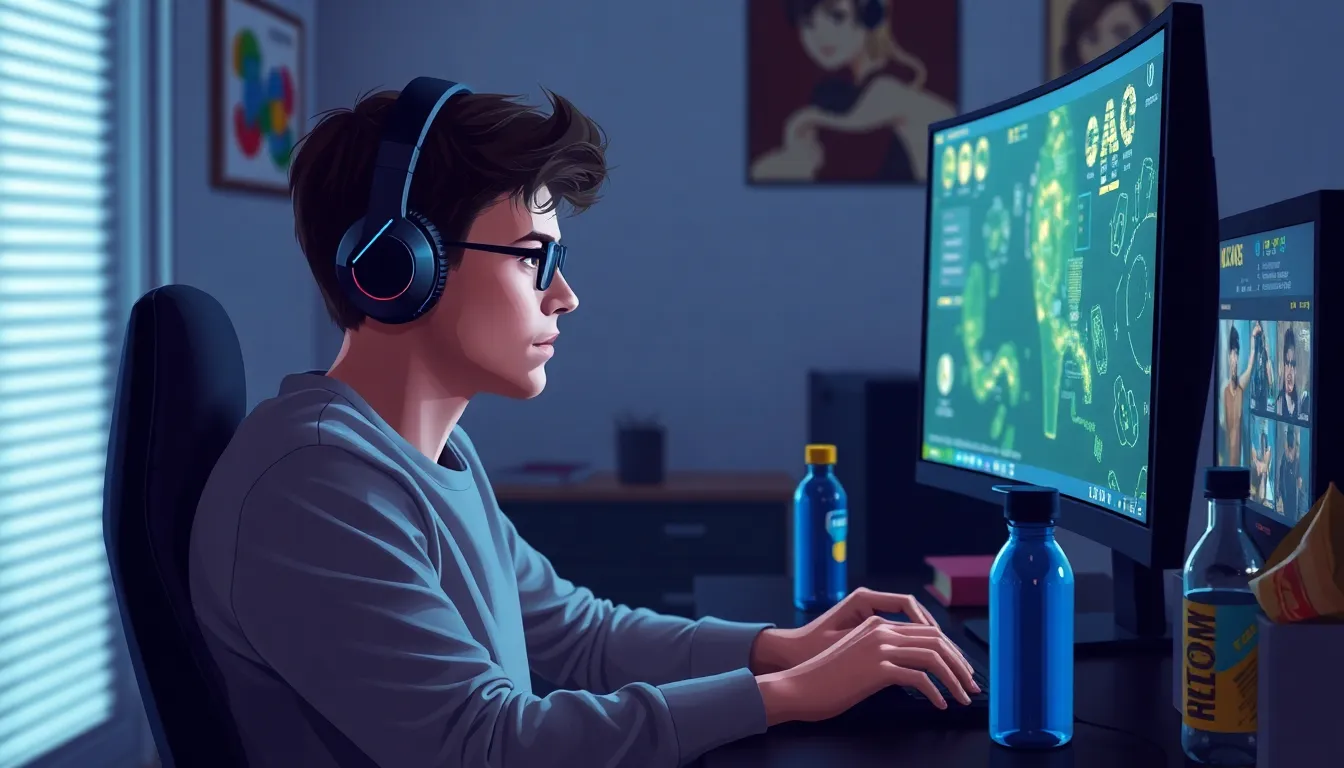In a world where leveling up is as common as scrolling through social media, gaming has become a beloved pastime for millions. But what happens when the virtual realm starts to bleed into reality? Can too much gaming really crank up the anxiety meter?
can too much gaming overdertoza cause anxiety
Overdertoza refers to the excessive engagement in virtual gaming environments, where individuals frequently blur lines between reality and digital experiences. Prolonged periods of gaming can lead to significant changes in mental health. Gamers may experience heightened anxiety levels as they struggle to balance gaming with daily responsibilities.
Increased gaming can create social isolation, reducing face-to-face interactions and limiting emotional support from peers and family. This detachment can exacerbate feelings of loneliness and anxiety. Studies indicate that excessive game time can link with higher levels of stress, making it more difficult to manage everyday challenges.
Under certain conditions, overdertoza can trigger negative emotions, including frustration and irritability. Players may develop unrealistic expectations for themselves and their gaming performance. Success in games often translates to temporary boosts in self-esteem, yet failure can lead to significant emotional distress.
Moderation in gaming proves essential for mental wellbeing. Setting clear boundaries on gaming duration and frequency can help maintain a healthy balance. Engaging in other activities and hobbies can also alleviate the pressure stemming from excessive gaming.
Understanding the psychological aspect of overdertoza is crucial. Awareness of its effects on mental health can encourage individuals to seek help or support when struggling. Encouraging conversations about gaming habits can foster healthier gaming environments for all.
The Connection Between Gaming and Anxiety

Gaming holds a prominent place in many people’s lives, yet its excessive engagement can bring about adverse effects. Notably, excessive gaming, often referred to as overdertoza, can lead to significant psychological consequences.
Psychological Impacts of Excessive Gaming
Anxiety levels often rise for gamers heavily immersed in virtual environments. Players may develop heightened sensitivity to failure, which contributes to increased stress and frustration. Unrealistic expectations from gaming can exacerbate these negative emotions. Additionally, feelings of isolation tend to increase, particularly when social interactions diminish outside the gaming realm. Gamers losing touch with reality may find it hard to navigate real-world relationships and responsibilities. Thus, the mental health impacts of overdertoza are significant and warrant attention.
Physical Symptoms Linked to Overgaming
Prolonged gaming can lead to various physical symptoms that affect individuals’ overall health. Eyestrain frequently occurs due to extended screen time, causing discomfort and fatigue. Sedentary behavior associated with long gaming sessions can contribute to weight gain, affecting physical fitness. Additionally, gamers may experience disrupted sleep patterns, which can exacerbate anxiety symptoms. Stress and tension often manifest as headaches or muscle pain, further complicating physical well-being. Overall, the physical ramifications of overdertoza highlight the need for balanced gaming habits.
Signs of Anxiety Related to Gaming
Excessive gaming can trigger various signs of anxiety that gamers may not recognize. These symptoms often manifest subtly, affecting daily life significantly.
Behavioral Changes in Gamers
Gamers might exhibit noticeable behavioral changes. Increased irritability during gameplay may signal mounting anxiety. Withdrawal from friends and family often occurs, reflecting a preference for gaming over social interactions. Frequent gaming sessions can lead to neglect of responsibilities, including work or school obligations. Gamers may also struggle to balance gaming with other important activities, portraying an unhealthy attachment. Reduced participation in physical activities can result from the time dedicated to gaming, compounding feelings of isolation and stress.
Emotional Responses to Gaming Experiences
Emotional responses play a crucial role in understanding anxiety linked to gaming. Gamers frequently experience frustration when encountering setbacks or challenges in games. Overreaction to in-game failures can signify deeper emotional distress. Those impacted by overdertoza often feel helpless when confronted with difficult levels or opponents. Intense excitement during successful gameplay can quickly shift to anxiety when performance expectations are not met. Continuous comparison with others’ achievements may foster feelings of inadequacy, leading to increased anxiety and negative self-perception.
Managing Gaming Habits
Establishing effective gaming habits is crucial for maintaining mental health. Balanced gaming habits can help reduce anxiety and enhance overall well-being.
Setting Healthy Gaming Limits
Setting defined boundaries on gaming time is essential for mental health. Gamers must designate specific hours for play and stick to them. Incorporating breaks every hour keeps the mind fresh and reduces fatigue. Tracking gaming sessions with apps or schedules can also promote accountability. Finding a balance between gaming and real-world activities fosters healthier relationships and encourages social interactions. Prioritizing responsibilities over gaming creates a foundation for emotional stability.
Alternatives to Excessive Gaming
Exploring alternatives to gaming can lead to healthier pastimes. Engaging in physical activities like walking, jogging, or cycling boosts mood and reduces stress. Participating in hobbies such as painting, reading, or cooking provides creative outlets that offer satisfaction. Forming social connections through clubs or community events helps combat feelings of isolation. Additionally, practicing mindfulness or meditation techniques offers relaxation and grounding, which can alleviate anxiety. Prioritizing these alternatives enhances life satisfaction and reduces dependency on gaming.
Wind-up
Excessive gaming can have profound effects on mental health particularly in the form of anxiety. By understanding the signs and consequences of overdertoza individuals can take proactive steps to mitigate these risks. It’s essential to establish healthy gaming habits and prioritize real-life interactions to maintain emotional balance.
Finding a mix of activities that promote well-being can make a significant difference. Engaging in hobbies physical exercise and social connections can provide a much-needed counterbalance to the virtual world. By fostering awareness and encouraging moderation gamers can enjoy their passion while safeguarding their mental health.
